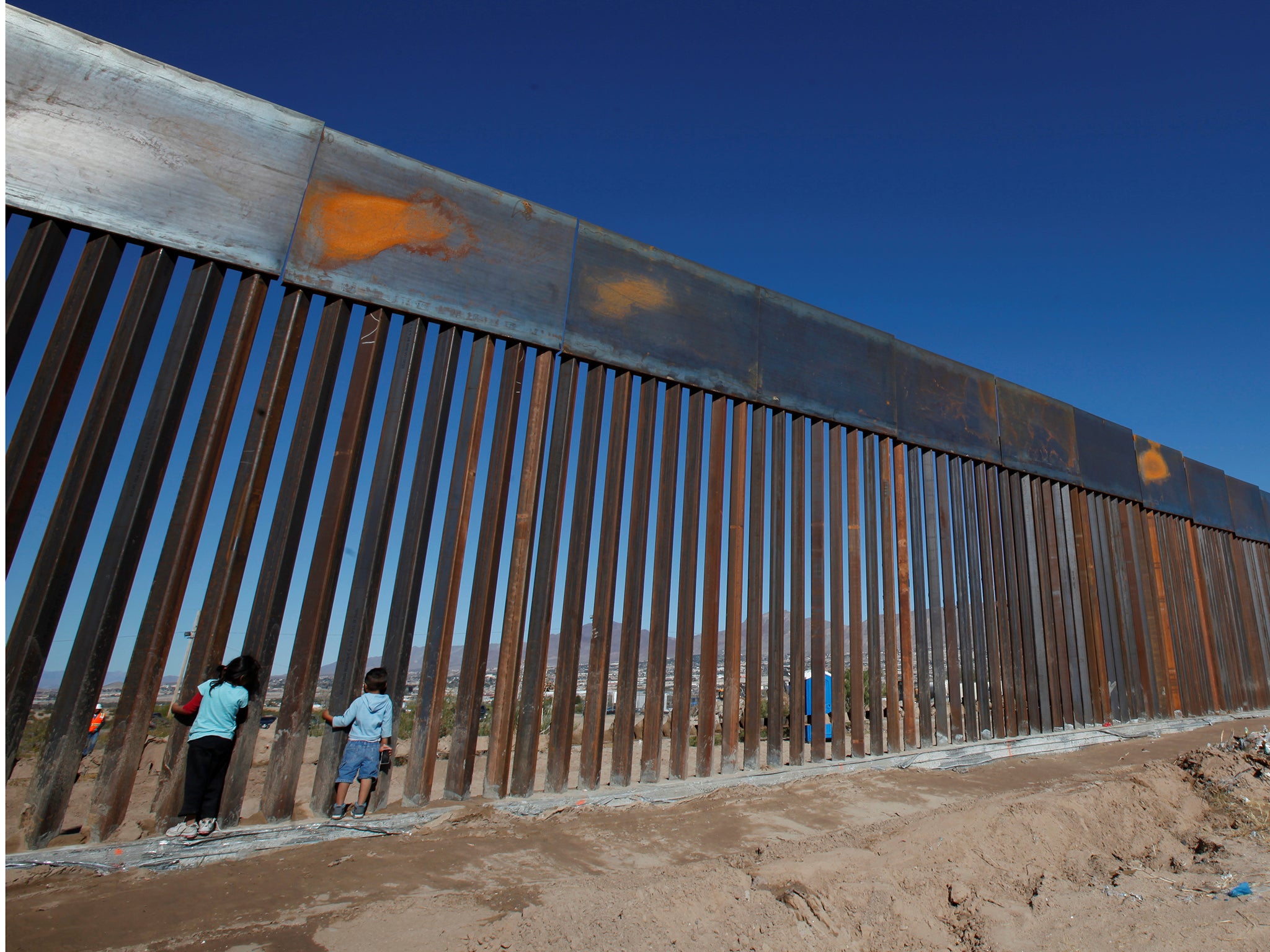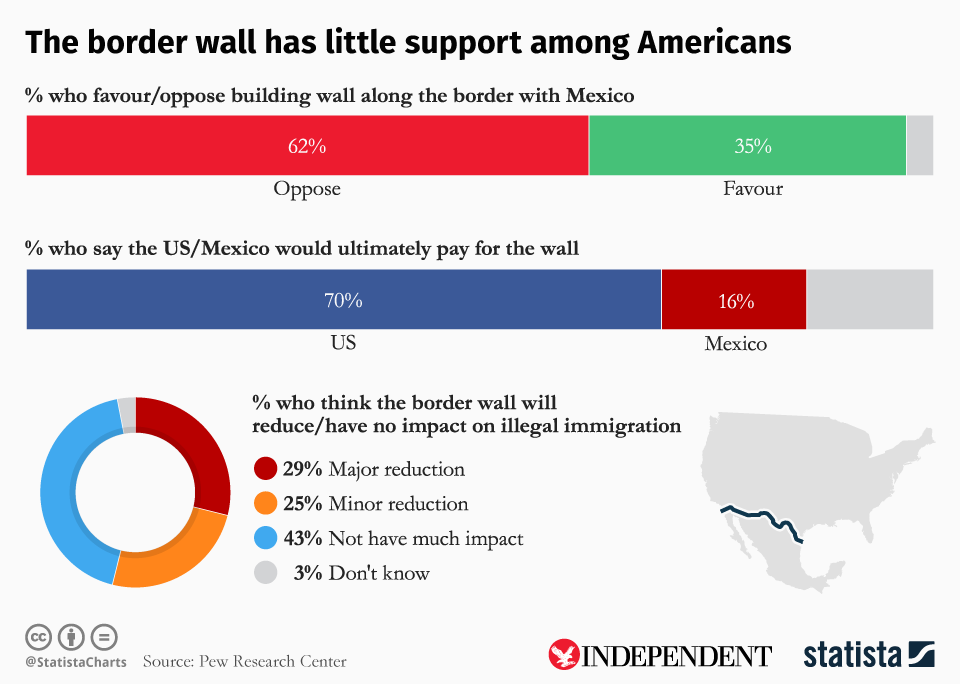Majority of Americans against Trump's wall and do not believe Mexico will pay for it
Near-two-thirds figure is higher than on election day

Nearly two-thirds of Americans oppose President Donald Trump's plan to build a wall along the US border with Mexico — and even more are convinced he will fail to keep his promise to make Mexico pay for it,
Mr Trump's insistence that the US' southern neighbour will foot the bill for the scheme led to a very public falling out with Mexico's president, Enrique Peña Nieto, who had vowed not to cough up. Following a series of tweets by Mr Trump about the "badly needed wall", Mr Peña Nieto cancelled a planned visit to Washington.
The graphic below, created for The Independent by statistics agency Statista, indicates 70 per cent of Americans believe they will eventually be on the hook for the wall, to the tune of at least $120 per household.
Based on a survey carried out by Pew Research Centre, it also suggests just 16 per cent believe Mr Trump's assurances that Mexico will pay.

Mr Trump has said the price would drop "way down" once he became involved in the planning process. According to a leaked Department of Homeland Security report, the barrier could cost as much as $21bn (£17bn) and take more than three years to construct.
Some 650 miles of fencing already in place has come at a cost of $7bn ($5.6bn) and Mr Trump's plans require extending the barrier into increasingly remote and mountainous regions, which raises the building costs significantly.
The proportion of Americans who oppose the wall has increased since election day, from 54 per cent to 62 per cent.
Mr Trump is to re-introduce another flagship anti-immigration policy this week with an updated travel ban. The President has chosen not to fight a court ruling that struck down the original ban on travellers from seven Muslim-majority countries, and will instead introduce a new version featuring "minor technical differences".
The first ban, signed on 27 January, temporarily restricted entry to the US for citizens of Iraq, Iran, Syria, Sudan, Somalia, Yemen and Libya — and indefinitely to Syrian refugees.
It caused widespread confusion at airports in the US and elsewhere, but was blocked after three federal judges ruled it was not legitimate.
There has been a backlash to Mr Trump's crackdown on illegal immigrants already inside the US, with Washington state governor Jay Inslee banning his staff from cooperating with enforcement agents unless the law requires it.
State agencies are also ordered not to collect any more information on people than strictly necessary, and not to deny anyone services based on their citizenship.
John Kelly, the homeland security secretary, said during a visit to Mexico that there would be "no mass deportations" as Mr Trump's promise to "immediately" remove large numbers of undocumented migrants is implemented.
Thousands of new Immigration and Customs Enforcement officers are to be hired.
Mr Trump told business executives at a recent meeting that his administration was "getting drug lords out".
"We're getting really bad dudes out of this country, at a rate that nobody's ever seen before," he added.
Join our commenting forum
Join thought-provoking conversations, follow other Independent readers and see their replies
Comments
Bookmark popover
Removed from bookmarks